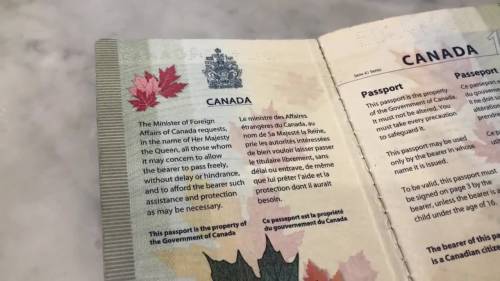The early spring rain pelted against the window of Sarah McKenzie’s Vancouver apartment as she stared at the third medical bill she’d received that month. Six months pregnant with her first child, the 29-year-old software developer had moved from Alberta to British Columbia just weeks before discovering she was expecting.
“I thought healthcare was healthcare across Canada,” Sarah told me, spreading the paperwork across her kitchen table. “I never imagined I’d be caught in this kind of bureaucratic limbo while pregnant.”
Sarah’s situation isn’t unique. Each year, thousands of Canadians who relocate between provinces encounter unexpected gaps in their healthcare coverage during transition periods. For pregnant women, these gaps can be particularly stressful during a time already filled with physical and emotional changes.
Canada’s healthcare system, while universal in principle, operates as 13 distinct provincial and territorial systems. When Canadians move between provinces, they face waiting periods of up to three months before coverage in their new home province begins. During pregnancy, this waiting period can coincide with critical prenatal appointments and tests.
“The system assumes people remain stationary,” explains Dr. Alison Wong, an obstetrician at BC Women’s Hospital who regularly sees patients caught between provincial health plans. “But Canadians are increasingly mobile for work, family, and economic reasons. Our healthcare structure hasn’t adapted to this reality.”
For Sarah, the confusion began when her Alberta health card was still valid on paper, but physicians in Vancouver were reluctant to accept it. Meanwhile, her BC coverage wouldn’t activate for another six weeks. Each prenatal visit came with upfront payment requests ranging from $75 to $250.
“I’m fortunate I could afford it, though it’s strained our budget for the nursery,” Sarah said, rubbing her growing belly. “But what about women who can’t? Do they just skip prenatal care?”
According to Health Canada statistics, approximately 375,000 Canadians move between provinces annually. The Canadian Institute for Health Information reports that interprovincial migrants are significantly more likely to report unmet healthcare needs during transition periods.
These gaps affect not just pregnant women but also patients with chronic conditions requiring ongoing care. The Canadian Medical Association has called for better coordination between provincial health systems, particularly for vulnerable populations like pregnant women and those with complex health needs.
When I visited Sarah again two weeks later, she had found a community health clinic willing to see her without upfront payment and submit retroactive claims once her BC health coverage activated. The relief on her face was evident as she showed me her upcoming appointment card.
“A nurse at the clinic told me they see this all the time,” Sarah explained. “She said many women don’t know they can apply for expedited coverage in special circumstances like pregnancy.”
Indeed, most provinces offer provisions for accelerated health coverage in certain situations, but awareness of these options is limited. Provincial health websites often bury this information deep within policy documents, making it difficult for newcomers to navigate.
Jennifer Morris, a patient advocate with Healthcare Navigation Network, has spent five years helping Canadians understand their coverage options when moving between provinces. “The system places the burden of knowledge on the individual,” Morris says. “But healthcare bureaucracy isn’t something most people understand intuitively, especially during stressful life transitions like pregnancy or relocation.”
The implications extend beyond financial concerns. Dr. Patricia Strachan, researcher at McMaster University’s School of Nursing, has documented how gaps in coverage lead to delayed care and poorer health outcomes. “Continuity of care is fundamental to maternal and child health,” she explains. “Even short disruptions can have long-term consequences.”
For newcomers to Canada, the situation can be even more complicated. Permanent residents face similar waiting periods, while those on work or study permits navigate a patchwork of private insurance requirements that vary by province and may exclude pregnancy as a pre-existing condition.
In Winnipeg, community midwife Leona Thompson runs a clinic specifically designed to support women caught in coverage gaps. “We see people making impossible choices between paying rent and receiving prenatal care,” Thompson told me during a phone interview. “A truly universal system wouldn’t force these choices.”
Healthcare policy experts have proposed several solutions, including a national pregnancy coverage guarantee that would transcend provincial boundaries, reciprocal billing improvements between provinces, and clearer communication about coverage options for people in transition.
As Sarah prepares for the birth of her daughter in the coming months, she’s become an informal resource for other women in similar situations, sharing information in online pregnancy forums about navigating the interprovincial healthcare maze.
“The most frustrating part was not knowing what I didn’t know,” she reflected. “Our healthcare system is something Canadians are proud of, but these gaps show we still have work to do to make it truly universal.”
As climate change, economic pressures, and remote work continue to reshape how and where Canadians live, the need for a more nimble, coordinated healthcare system becomes increasingly urgent. For the approximately 380,000 babies born in Canada each year, ensuring their mothers receive consistent, uninterrupted care regardless of provincial boundaries should be a national priority.
In the meantime, advocates recommend that pregnant women planning interprovincial moves contact health authorities in both provinces well in advance, request expedited coverage where available, and budget for potential out-of-pocket expenses during transition periods. Community health centers and midwifery clinics often provide more flexible payment options than private practices.
As the rain finally subsided outside Sarah’s apartment, a patch of late afternoon sunlight illuminated her stack of medical bills and pregnancy journals. “I’m focusing on the positive now,” she said, sorting the papers into a folder. “But I hope sharing my story helps change things, so other women don’t have to navigate this confusion during what should be a joyful time.”






